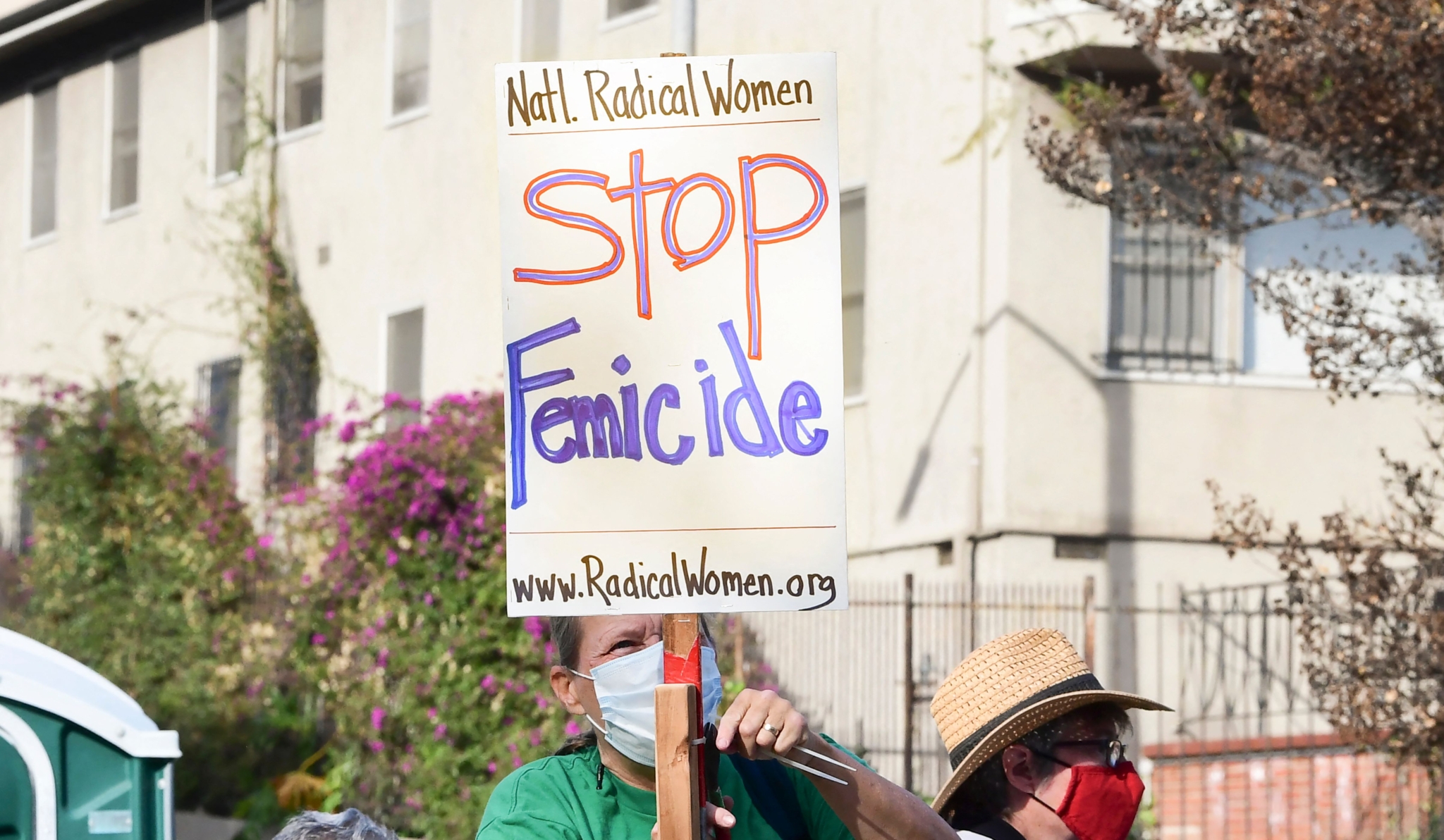Investigations by the State of Mexico Attorney General’s Office into feminicides preceded by disappearances are seriously flawed due to the inaction and negligence of the authorities leading to evidence being lost, all lines of inquiry not being investigated, and a gender perspective not being applied correctly. These shortcomings hamper the judicial process and increase the likelihood that cases will remain unpunished, said Amnesty International in a new report released today.
Justice on trial: Failures in criminal investigations of feminicides preceded by disappearance in the State of Mexico documents how these failings are consistent with those found in other investigations highlighted by civil society organizations and by rights holders, as well as with cases such as the feminicides committed in Ciudad Juárez, Chihuahua, more than 20 years ago. This indicates that feminicidal violence and the failures in investigating and preventing them are part of a broader reality in the country.
Read the report
“State-level authorities must prevent, investigate and punish feminicides with due diligence. As part of the Mexican state, they are obliged to comply with the international treaties to which Mexico is a state party, including the Belem do Pará Convention, the Convention on the Elimination of all forms of Discrimination against Women and the judgments issued by the Inter-American Court of Human Rights in respect of Mexico, which establish a set of norms, standards and principles to guarantee women’s rights”, said Edith Olivares Ferreto, Executive Director of Amnesty International Mexico.
“Each feminicide has an appalling impact on the victims’ families, who, in their search for access to the truth, justice and reparation for the harm done, also suffer re-victimization by the authorities. For this reason, Amnesty International continues to insist that the issue of violence against women must be a high priority on the agenda of the federal and local governments.”
In 2020 alone, 3,723 killings of women were registered in Mexico, of which 940 were investigated as feminicides in the country’s 32 states. Not one state was free of feminicides.
In the report, Amnesty International documents four emblematic cases of feminicide preceded by disappearance, specifically detailing the failings in the criminal investigations into each killing. The cases documented were those of Nadia Muciño Márquez, who was killed in 2004; Daniela Sánchez Curiel, who disappeared in 2015 and whose whereabouts remain unknown and whose family assumes she was a victim of feminicide; Diana Velázquez Florencio, who disappeared and was killed in 2017; and Julia Sosa Conde, who disappeared and was killed in late 2018.
The report shows that state authorities fail to examine the crime scene properly; store the evidence collected securely; or carry out forensic tests or processes, resulting in loss of data, objects or substances and testimonies.
The authorities do not always pursue all lines of inquiry and their failure to act results in the victims’ relatives – generally women – taking on leading the investigations and using their own resources to do so. In some instances, the authorities threaten and harass families so that they do not bring the case to the attention of their superiors. The authorities do not always apply a gender perspective throughout the criminal process, in contravention of protocols on investigating killings of women.
The report also shows that the State of Mexico Attorney General’s Office officials do not have the necessary conditions to enable them to carry out investigations: their workload is excessive and they lack the material resources to carry out some procedures. In addition, personnel have to pay for some of the materials needed to carry out investigations themselves and their offices do not have anywhere to store evidence securely, which increases the risk of contamination and destruction. They also require further specialized training to carry out investigations appropriately.
The failings documented in the investigations result in violations of women’s human rights to life and physical safety and their families’ rights to judicial protection and access to justice. In order to protect the rights of victims, Amnesty International makes the following recommendations.
- To the State of Mexico Attorney General’s Office: Ensure that the Central Attorney General’s Office on Crimes Linked to Gender-Based Violence has the human and financial resources necessary to carry out its function efficiently and with decent working conditions and design and deliver training on how to investigate disappearances and killings of women from a gender perspective.
- To the Congress of the State of Mexico: Ensure that the State of Mexico Attorney General’s Office, especially the Central Attorney General’s Office on Crimes Linked to Gender-Based Violence, has the human and financial resources to carry out its functions properly.
- To the State of Mexico Human Rights Commission: Investigate the problem of failures in criminal investigations of crimes of violence against women, especially feminicides and disappearances, and issue recommendations that address the issues highlighted in this report.
- To the federal authorities: Publicly acknowledge the scale of the problem of feminicides and disappearances in Mexico, as well as the failings in the investigations into these crimes.
In parallel with the publication of the report, Amnesty International has launched the #HastaSerEscuchadas (Until They Are Heard) campaignwhich aims to ensure that the authorities publicly acknowledge the failings in the investigations of feminicides, comply with the movement’s recommendations and initiate a process to provide reparations for the harms caused by these failings.
“At Amnesty International we will continue to raise our voices together with those of victims’ families and support them in their search for truth, justice and reparation for the harm suffered, until they are heard”, said Edith Olivares Ferreto.
Read more:
Justice on trial: Failures in criminal investigations of feminicides preceded by disappearance in the State of Mexico https://www.amnesty.org/en/documents/amr41/4556/2021/en/
Media Contact
Cory Ruf
Media Relations
416-363-9933 x344
media@amnesty.ca























